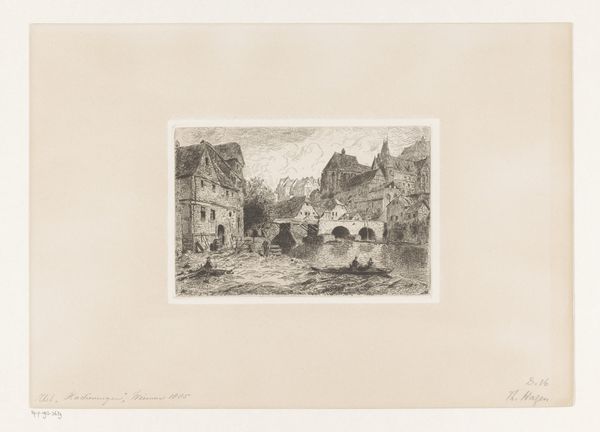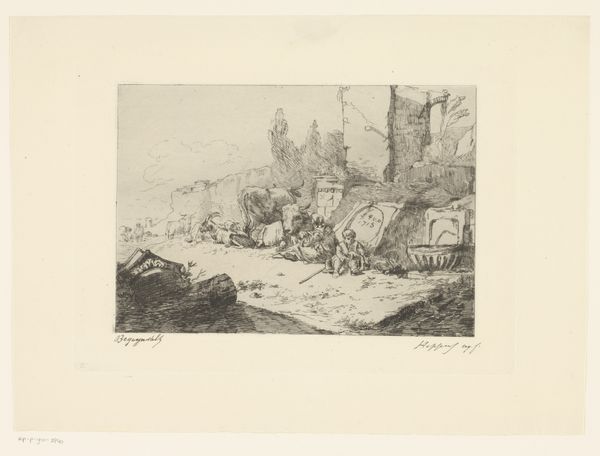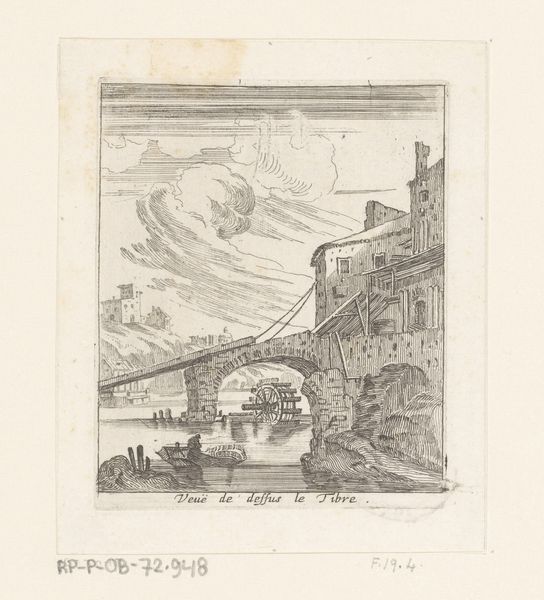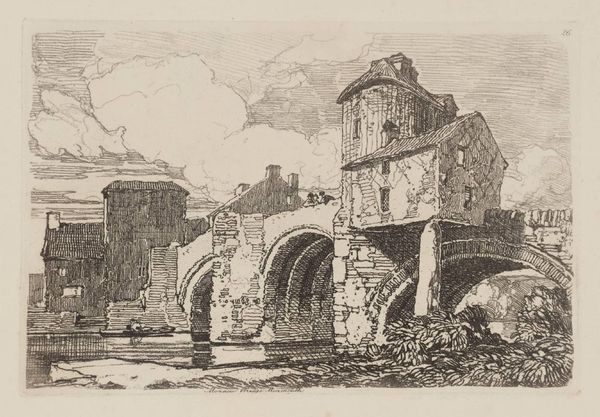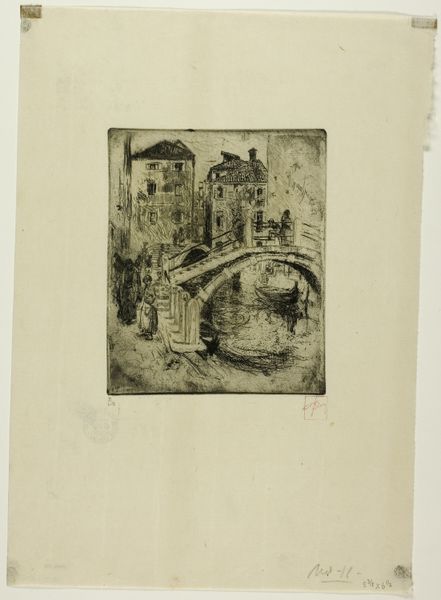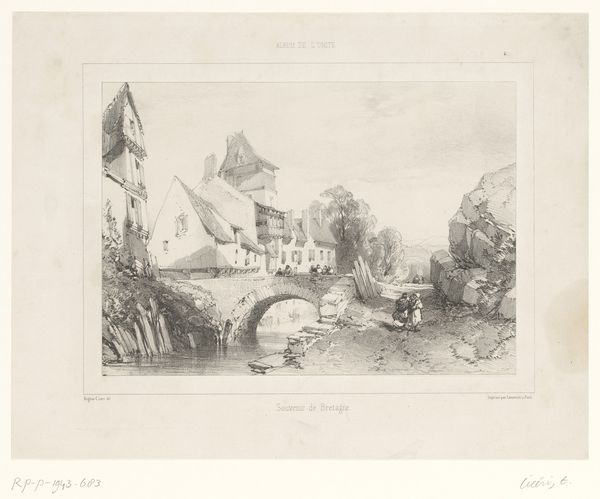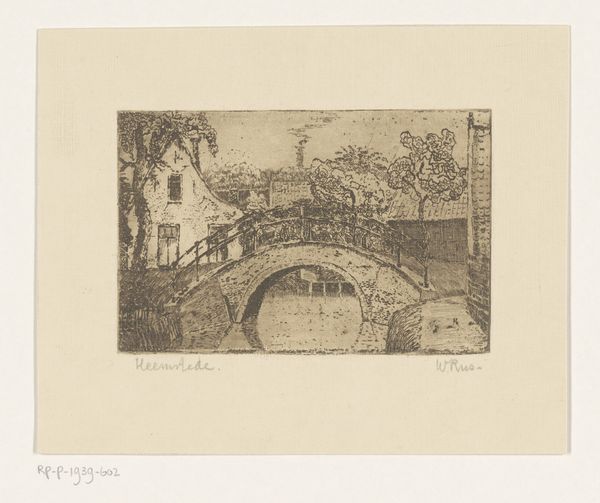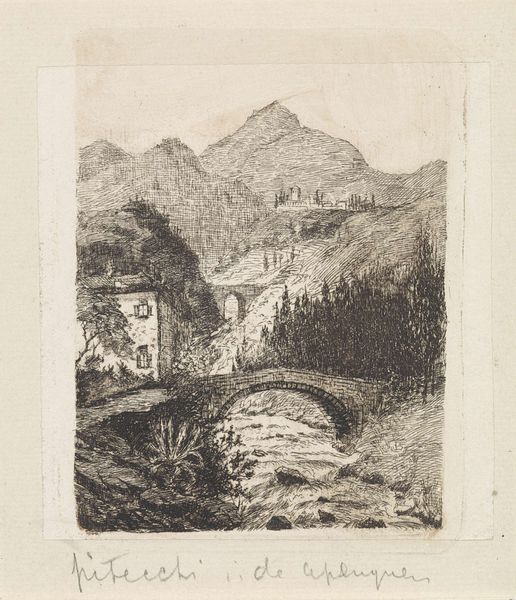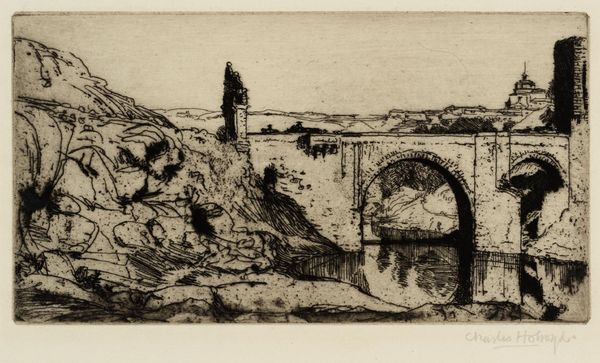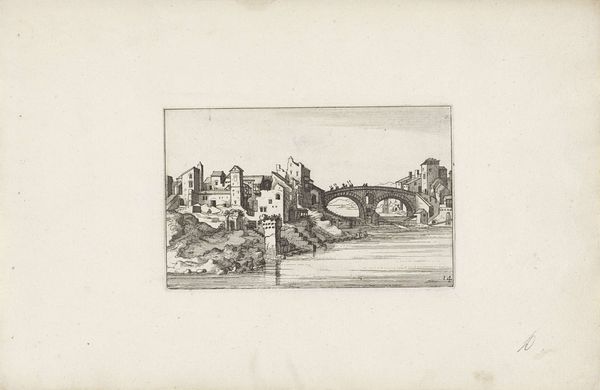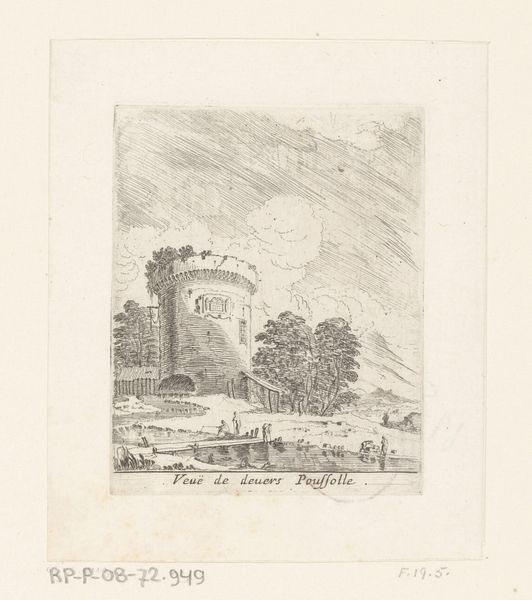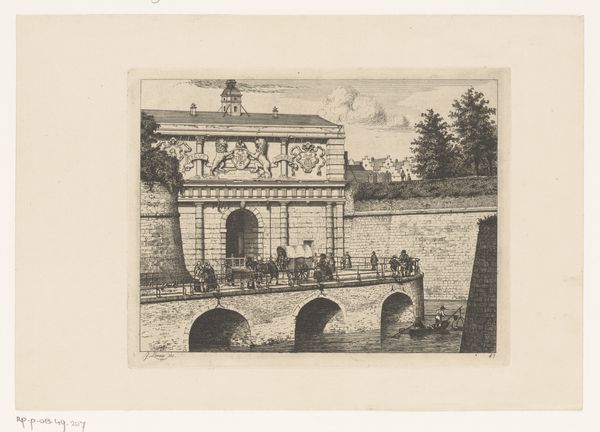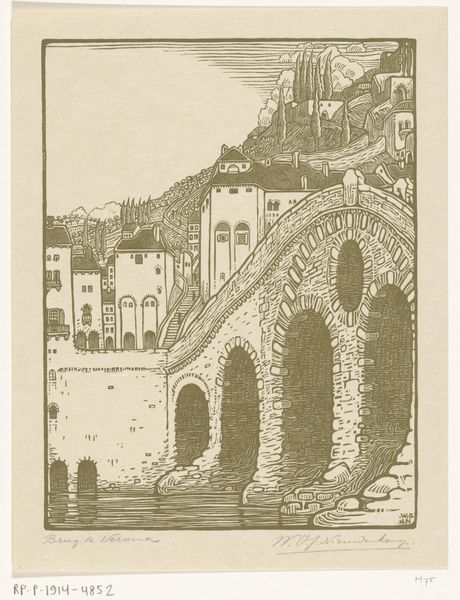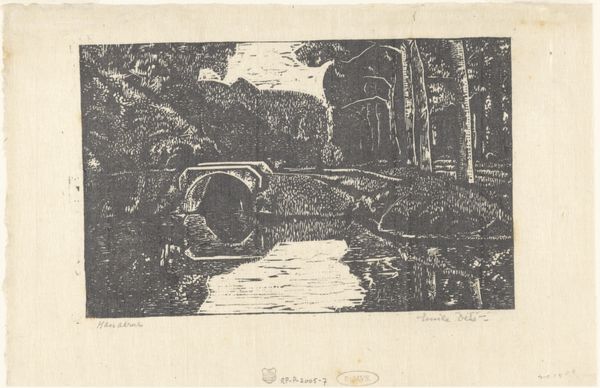
#
light pencil work
#
quirky sketch
#
pen sketch
#
pencil sketch
#
personal sketchbook
#
sketchwork
#
ink drawing experimentation
#
pen-ink sketch
#
sketchbook drawing
#
sketchbook art
Dimensions: height 94 mm, width 143 mm
Copyright: Rijks Museum: Open Domain
Louis Charles Hora Siccama made this etching of the Millau bridge using metal plate, mordant, and printing ink. This wasn’t simply a drawing, but a chemically and mechanically intensive process. Look closely, and you’ll see how the etched lines define the form of the landscape, from the heavy stonework of the bridge itself, to the distant mountains. See how the varying density of the lines create the illusion of light and shadow, giving depth to the image? The etching process allowed Siccama to create multiple identical images, to be circulated widely. Consider the social context: this bridge would have been a vital artery for trade and transport, and now, thanks to the printmaking process, it could be disseminated as an image too. So while this might seem like a simple landscape, it’s really about the power of industrial processes to transform both the physical world, and our perception of it. It challenges the traditional distinction between craft and fine art, and reminds us that all art is made through a process.
Comments
No comments
Be the first to comment and join the conversation on the ultimate creative platform.
